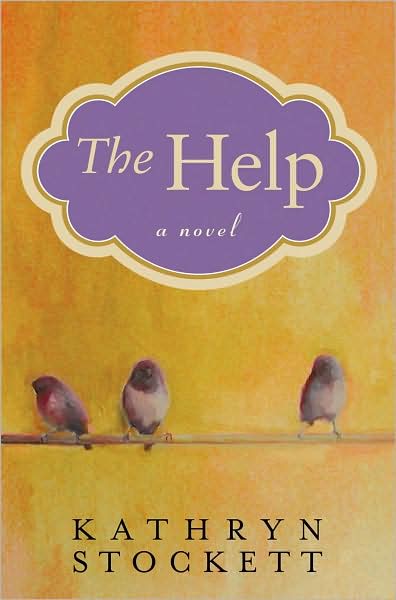
The Help is an illustrative novel about three brave women in 1960’s Mississippi that brings the feelings of that era to life with accurate details of true events and descriptive details. By author Kathryn Stockett, this novel evokes the raw emotions of African American maids before the peak of the Civil Rights Movement along with the struggle of a white woman to find her place. The novel is narrated by three main characters – Minny Jackson, Aibileen Clark, and Eugenia “Skeeter” Phelan.
Minny Jackson is a fiery maid and the best cook in town, but she struggles to keep a job because of her controversial opinions. She finds herself unemployed after being fired by Miss Hilly Holbrook, and is lucky to obtain a position working for Miss Celia Foote, a newcomer to town who is not yet aware of Minny’s reputation. However, Celia is very different from the well-to-do women Minny usually works for; Celia’s suspicious behavior and secrets let Minny know she is hiding something. Minny’s humorous side comments and sarcasm provide comic relief to the heavy topic of racism.
Aibileen Clark is a respectful and loving maid taking care of her seventeenth white child, while going through the pain of recently losing her own son. She starts working for Miss Elizabeth Leefolt, looking after her children, including Mae Mobley, whom Elizabeth neglects and often physically abuses. Aibileen faces the racist attitude of her employer every day, which sparks from Elizabeth’s friend, Hilly Holbrook. Pushed by Hilly, Elizabeth installs a separate restroom for Aibileen outside. Aibileen is unhappy with the racist values Elizabeth has, and she tries to discreetly teach Mae Mobley what equality and love really stand for. Her courage through dealing with the loss of her son as well as unjust ways of the period makes her a respectable and admirable woman.
Eugenia “Skeeter” Phelan has just graduated from Ole Miss and is focusing on becoming a writer, but her dream is unrealistic for the time period, which leads her skeptical mother to pressure her to find a husband from a wealthy family. Skeeter is different from her friends – most are married with children and subject to the cruel racist attitudes of the early 1960’s. Skeeter has a level of respect for the African American household maids that rarely any white women did in Jackson at that time, and it is because she was raised by one. The pressures Skeeter faces at home push her to escape the fated destiny already picked out for her by her Mother. She wants desperately to be a writer at the prestigious Harper and Row Company, so she decides to write a controversial book full of interviews with African American maids in Jackson, Mississippi. Skeeter sends in her draft and the editor responds by telling her to add more details, because of the upcoming relevant march on Washington being held by Martin Luther King. Her voice throughout gives hope for the reader to believe that racism will be abolished from society in the book and hope that Skeeter will have the happy ending she deserves.
At Elizabeth’s house one day, Hilly further advocates her unfair idea of having white families install a separate bathroom for their African American help outside. Skeeter, who is not racist, does not agree with this but does not say anything, and she is inspired to find out the opinions of the help and if they also want to change the way things are.
Skeeter first confronts Aibileen and asks if she ever thinks about how things might be different, and Aibileen is too afraid of losing her job to give her true opinion. But at home Aibileen ponders Skeeter’s question, and is surprised it came from a white woman. She decides she does want to change things and encourages her friends and church members to interview Skeeter with their experiences. Aibileen’s change of mind gives a wave of hope throughout their community that their experiences will become recognized nationally.
Kathryn Stockett is able to further accentuate the feelings of the era with a southern dialect by the narrators. It is interesting to see life in that time through the eyes and voices of the African American maids as well as Skeeter, who is not like the racist women around her.
Skeeter, Aibileen and Minny prove that they are unhappy with the way society looks at both white and African American women, and they hope to expose the unfair treatment they face as they set out to blur the lines that have restricted them all of their lives. The 1960’s was a time of chaos and change throughout America and Stockett focuses in on the South and one of the most racist areas in the period. Throughout the novel, key events in the Civil Rights Movement are explored such as the March on Washington led by Martin Luther King and racist murders that are tried. The inspiring novel has also been adapted into a film that is due out in August 2011, starring Emma Stone.









